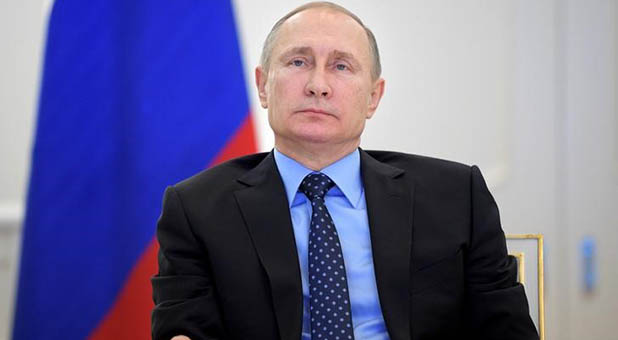Obama Expels Russian Diplomats, Places New Sanctions
HONOLULU/WASHINGTON (Reuters) – President Barack Obama ordered the expulsion of 35 Russian suspected spies and imposed sanctions on two Russian intelligence agencies over their involvement in hacking U.S. political groups in the 2016 presidential election.
The measures, taken during the last days of Obama’s presidency, mark a new post-Cold War low in U.S.-Russian ties which have deteriorated over Ukraine and Syria.
Allegations by U.S. intelligence agencies that Russian President Vladimir Putin personally directed efforts to intervene in the U.S. election process by hacking mostly Democrats have made relations even worse.
“These actions follow repeated private and public warnings that we have issued to the Russian government, and are a necessary and appropriate response to efforts to harm U.S. interests in violation of established international norms of behavior,” Obama said in a statement from vacation in Hawaii.
It was not immediately clear whether President-elect Donald Trump, who has repeatedly praised Putin and nominated people seen as friendly toward Moscow to senior administration posts, would seek to roll back the measures once he takes office on Jan. 20.
The Kremlin, which denounced the sanctions as unlawful and promised “adequate” retaliation, questioned whether Trump approved of the new sanctions. Moscow denies the hacking allegations.
U.S. intelligence agencies say Russia was behind hacks into Democratic Party organizations and operatives ahead of the Nov. 8 presidential election. U.S. intelligence officials also say that the Russian cyberattacks were aimed at helping Trump, a Republican, defeat Democrat Hillary Clinton.
Trump has rejected that conclusion and said on Wednesday that “we ought to get on with our lives,” when asked about possible tough sanctions for the cyberattacks.
Should Trump seek to overturn Obama’s measures, he would likely encounter wide bipartisan Congressional opposition.
U.S. House of Representatives Speaker Paul Ryan, the top Republican in Congress, said Russia “has consistently sought to undermine” U.S. interests and the sanctions were overdue.
Republican Senators John McCain and Lindsey Graham said they intended to lead effort in Congress to “impose stronger sanctions on Russia.”
The actions on Thursday were the strongest response by the Obama administration to Russia’s cyberactivities, however, a senior administration official acknowledged that Trump could reverse them and allow Russian intelligence officials back into the United States once he takes office. He said that would be “inadvisable”.
“We believe these steps are important because Russia is not going to stop,” one official said. “We have every indication that they will interfere in democratic elections in other countries, including some of our European allies,” the official said.
Persona Non Grata
Obama is seeking to deter Russia and other foreign governments from leveraging cyberattacks in the future to meddle in U.S. politics, former officials and cyber security experts said.
Obama put sanctions on two Russian intelligence agencies, the GRU and the FSB, four GRU officers and three companies “that provided material support to the GRU’s cyber operations.
Obama said the State Department declared as “persona non grata” 35 Russian intelligence operatives and is closing two Russian compounds in New York and Maryland that were used by Russian personnel for “intelligence-related purposes”. The State Department originally said the 35 were diplomats.
A senior U.S. official told Reuters the expulsions would come from the Russian embassy in Washington and consulate in San Francisco. The Russian embassy declined to comment on the expulsions.
The Russians have 72 hours to leave the United States, the official said. Access to the two compounds will be denied to all Russian officials as of noon on Friday, the senior U.S. official added.
“These actions were taken to respond to Russian harassment of American diplomats and actions by the diplomats that we have assessed to be not consistent with diplomatic practice,” the official said.
The State Department has long complained that Russian security agents and traffic police have harassed U.S. diplomats in Moscow, and U.S. Secretary of State John Kerry has raised the issue with Putin and his foreign minister, Sergei Lavrov.
The U.S. official declined to name the Russian diplomats who would be affected, although it is understood that Russia’s ambassador to the United States, Sergei Kislyak, will not be one of those expelled.
The United States also released an analysis report by the FBI and Department of Homeland Security examining forensic evidence officials said linked the cyberattacks to computer systems used by Russian intelligence services.
The report largely corroborates the existing findings of private sector cyber firms that investigated the breach at the Democratic National Committee and elsewhere. {eoa}
(Additional reporting by Dustin Volz and Yeganeh Torbati in Washington and Katya Golubkova and Svetlana Reiter in Moscow; Writing by Yara Bayoumy; Editing by Alistair Bell)
© 2016 Thomson Reuters. All rights reserved.















































